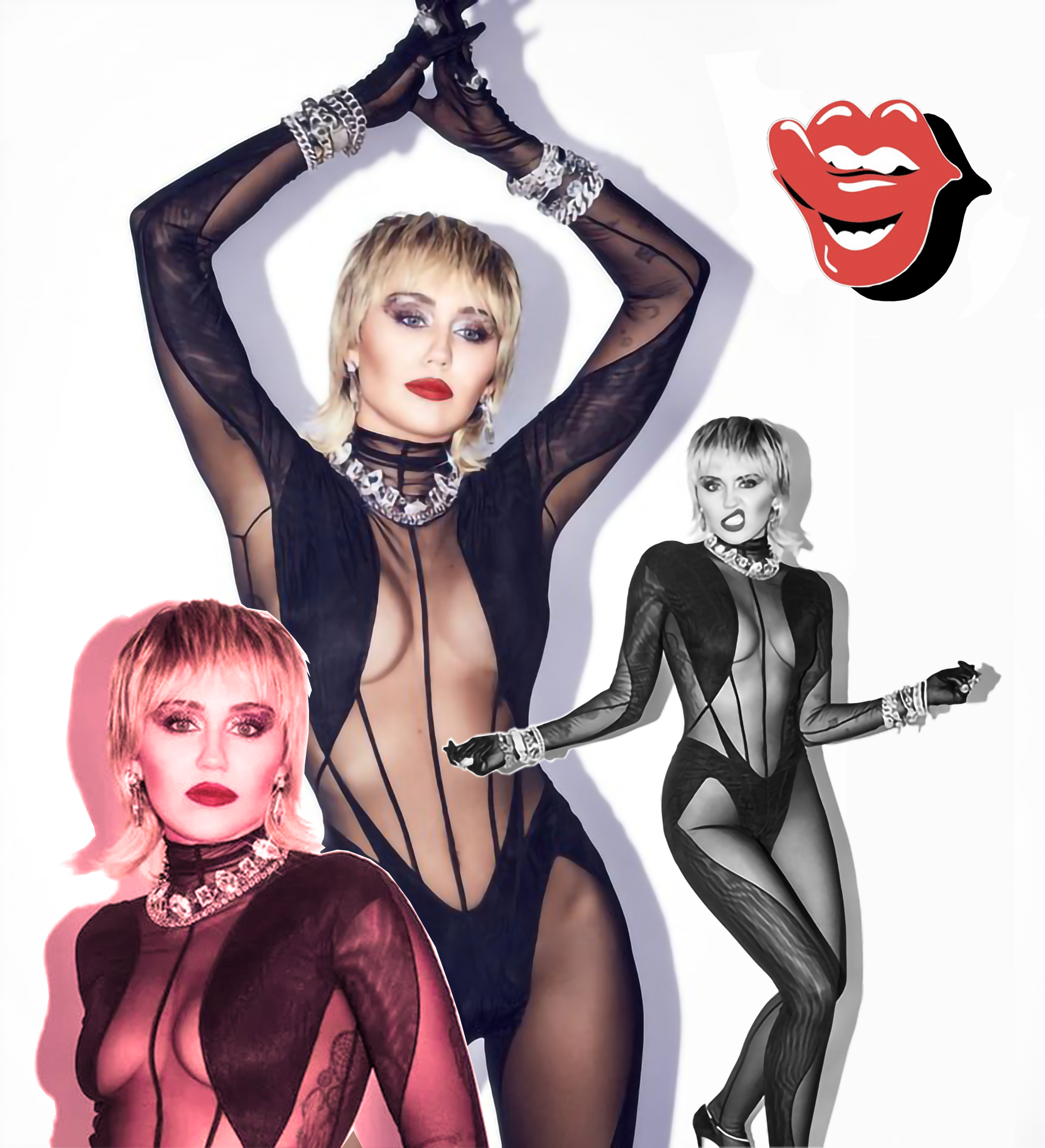Amassing a collective 6 million views on TikTok, and creating a viral trend, Miley Cyrus’s recent covers have exploded in popularity. Many have been left anxiously anticipating new original music from the artist, curious whether the glam-pop-rock energy in her covers will translate to something new. With a voice and personality that fits the gruff and gritty energy of rock, Cyrus makes the songs she covers her own and stands poised to deliver some of the best work of her career.
Cyrus’s skyrocketing return to the spotlight is largely thanks to a triplet of viral hits. The first, a cover of Blondie’s “Heart of Glass” at the virtual iHeartRadio music festival in September, caught fire on TikTok, prompting Cyrus to release the cover on Spotify. This was quickly followed up by a resurgent 2014 cover of the Arctic Monkeys’s “Why’d You Only Call Me When You’re High,” originally sung for MTV Unplugged. In her most recent cover of the Cranberries’ “Zombie,” Cyrus’s emulation of Dolores O’Riordan’s vocal style made even concert-going fans of the ’90s original (otherwise known as our parents) mistake the Cyrus version for the original.
After getting her start with Disney Channel on the show Hannah Montana, Cyrus’s discography has been dominated by pop and country songs. Hannah Montana had a distinctly pop style, with her alter ego Miley Stewart being a true country girl from Tennessee. This greatly influenced Cyrus’s real-life music career at the time, as her albums released between 2006 and 2011—including Breakout (2008), The Time of Our Lives (2009), and Can’t Be Tamed (2010)—fit the aesthetic of the show.
Since Disney, Miley Cyrus’s artistic journey has been a winding one, and the singer has taken on hip hop, country pop, and psychedelic pop on past albums. Her artistic personas have not always read as convincing—she has come under fire in the past for co-opting Black art styles when it’s trendy, only to later abandon the genre. Additionally, Cyrus’s distinctive raspy vocal delivery has not always been best suited for the sugar-sweet dance-pop records she was producing earlier in her career such as “Party in the USA” or “7 Things.”
Her recent covers take her in a direction that is far more cohesive with both her public persona and vocal style. Cyrus’s gravelly vocals are perfectly suited for her “Zombie” cover, which takes her in a grungy direction. Her cover of “Heart of Glass” is distinctively glam rock—where Blondie lead singer Debbie Harry’s vocals are light and bubbly, Cyrus’s take on the new wave classic is far rougher around the edges. Cyrus chooses to belt the verses, giving the song a more propulsive feel than Harry’s falsetto. She takes a similar approach on “Why’d You Only Call Me When You’re High?” and slightly tweaks the song to give it more energy. The style of the cover is rather similar to the original, save for a few alterations, like adding acoustic guitars to make the beat feel less bare-bones. However, the biggest difference can be seen in the last thirty seconds, when Cyrus belts the last refrain of “Why’d you only ever phone me when you’re high” with an added drama and heart-pumping finish. To compare, Alex Turner in the original adopts the same detached tone he carries throughout earlier parts of the song, making the conclusion feel anticlimactic and almost disappointing.
Cyrus’s personality also seems more suited for her recent genre shift; her unapologetically brash persona is more in line with hair-metal and glam rock frontmen than her dance-pop contemporaries. Before performing the Arctic Monkeys’s classic, Cyrus joked, “So this song is called ‘Why’d You Only Call Me When You’re High?’ And it’s a trick question, because I’m always high!”
It’s hard to picture this coming from one of her fellow Disney Channel child stars, like Selena Gomez or Demi Lovato. In the early 2010s, many questioned whether Cyrus was going off the rails following several viral cringe-fests like her 2014 VMA performance and her music video for “Wrecking Ball.” In hindsight, these seem more like a disconnect between an eccentric personality and the confines of the genre she was working within.
Cyrus’s next album Plastic Hearts (2020) is set to drop on Nov. 27, after being in development for over two years. Both “Heart of Glass” and “Zombie” are included on the tracklist, and ’70s rock icons Billy Idol and Joan Jett are featured. The combination of all of these elements suggests that her latest work will have a similar edgy sound as that of her covers—and, perhaps, that her release of the covers on TikTok was part of a larger marketing campaign for the album. TikTok has greatly changed how music becomes popular, with a variety of sleeper hits becoming popular after being used for a trend on the app. Plastic Hearts has the potential to be a launching point for Miley Cyrus to explore a more glam rock style, taking her music career to the next, and possibly best, level.







[…] Amassing a collective 6 million views on TikTok, and creating a viral trend, Miley Cyrus's recent covers have exploded in popularity. Many have been … View full source […]